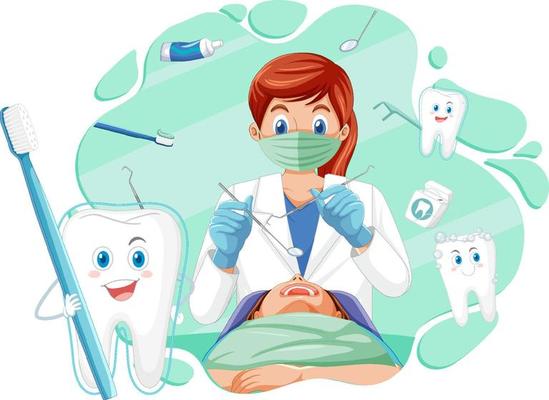Professional Tips for Choosing the Right Dentists Eugene for Your Dental Health and wellness
Professional Tips for Choosing the Right Dentists Eugene for Your Dental Health and wellness
Blog Article
Learn More About Frequent Oral Worries Your Dental Practitioner Can Deal With
Comprehending regular oral worries is crucial for maintaining optimal dental health. Problems such as dental caries, gum condition, tooth sensitivity, foul breath, and dental cavity are common yet frequently neglected until they become severe. Dental practitioners have the experience to detect and treat these problems, thus avoiding further complications. Regular dental check outs and individualized treatment plans can attend to these problems successfully, making sure a healthier and brighter smile. But what certain therapies do dental professionals employ to deal with these issues, and just how can early treatment make a distinction? The solution to these concerns use important insights into guarding your dental health.
Dental Caries
Tooth cavities, also known as cavities, are a prevalent dental wellness issue brought on by the demineralization of tooth enamel due to acid manufacturing from bacterial plaque. This process begins when bacteria in the mouth metabolize sugars and starches from food, producing acids that deteriorate the enamel. If not attended to quickly, this disintegration can penetrate deeper into the tooth, impacting the dentin and ultimately the pulp, possibly causing serious discomfort and infection.
The very early stages of cavity development commonly present as white places on the tooth surface area, suggesting initial demineralization. As the process progresses, these places can turn into black or brown sores, indicating a lot more extensive degeneration. Normal dental check-ups are vital for very early detection, as dental caries in their incipient stages can be treated with remineralization methods, such as fluoride therapies.
Dentists commonly remove the corroded portion of the tooth and fill the dental caries with products such as composite material, amalgam, or ceramic. Preventative steps, including great dental health methods and nutritional adjustments, play an essential role in alleviating the risk of cavities.
Gum Disease
While dental caries represent a substantial problem for oral health and wellness, another essential problem that demands focus is periodontal disease. Additionally referred to as gum disease, gum illness is an inflammatory condition affecting the tissues surrounding and supporting the teeth. It is mainly triggered by the accumulation of plaque-- a sticky movie of bacteria that bases on teeth.
Gum condition progresses through phases, beginning with gingivitis, defined by soreness, swelling, and hemorrhaging gums (dentist in eugene oregon). If left untreated, gingivitis can rise to periodontitis, where the inner layer of the gum and bone retreat from the teeth, developing pockets that come to be contaminated. Gradually, the toxic substances produced by the microorganisms damage down the bone and connective cells that hold teeth in location, potentially leading to tooth loss
Very early detection and therapy are critical. Professional oral cleansings and improved oral health methods, such as cleaning two times daily and flossing, can take care of gingivitis. For even more innovative phases, treatments may include scaling and root planing, prescription antibiotics, and even surgical interventions.
Routine oral check-ups play a pivotal duty in handling and protecting against gum tissue illness. Dental practitioners can identify very early indicators and advise appropriate interventions, making sure the upkeep of healthy periodontals and total dental wellness.
Tooth Sensitivity
Tooth level of sensitivity affects millions of individuals worldwide, providing an usual yet often distressing dental issue. This condition develops when the enamel, the outer safety layer of the teeth, is jeopardized, revealing the underlying dentin.
Several aspects add to enamel erosion and subsequent tooth level of sensitivity, consisting of hostile cleaning, acidic foods and beverages, gum tissue economic downturn, and bruxism (teeth grinding) In addition, oral procedures such as teeth bleaching can briefly enhance sensitivity.
Halitosis
Another common dental concern that influences people' everyday lives is bad breath, clinically described bad breath. Halitosis usually stems from bad dental hygiene, which allows food bits to continue to be in the mouth, promoting bacterial development.

Dental professionals play an important duty in treating and detecting halitosis. They can determine the origin with an extensive exam and provide customized guidance and therapy plans. Recommendations might entail enhancing oral hygiene practices, such as regular brushing and flossing, using anti-bacterial mouth washes, staying hydrated, and dealing with any kind of dental issues. In many cases, a reference to a professional may be essential to take on underlying health issue contributing to foul-smelling breath. Reliable management of bad breath not just improves dental health but likewise substantially boosts high quality of life.
Tooth Degeneration

Avoiding dental cavity involves a mix of great oral hygiene practices and routine oral exams. Cleaning teeth a minimum of twice daily with fluoride tooth paste, flossing to eliminate plaque between teeth, and limiting the consumption of sweet foods and drinks are vital safety nets. Fluoride therapies, oral sealers, and expert cleansings provided by a dentist can additionally play a significant dentists eugene function in strengthening enamel and protecting against decay.
When dental caries takes place, very early treatment is essential. Dental practitioners can remove decayed tissue and restore the tooth with fillings made from products such as composite material, amalgam, or porcelain. In advanced instances, treatments like crowns, root canals, or removals might be essential. By attending to dental caries immediately, dental professionals assist maintain dental framework pop over to these guys and feature, guaranteeing lasting oral health and wellness.
Final Thought
Dealing with usual oral concerns such as dental caries, gum tissue illness, tooth level of sensitivity, bad breath, and dental caries is critical for maintaining optimal oral wellness and overall well-being. Dentists have the proficiency to diagnose and deal with these problems efficiently, ensuring customized look after each person. Regular preventive actions and dental check-ups are crucial in identifying and handling these worries early, advertising a healthier and much more positive smile over a lifetime.

Tooth degeneration, additionally understood as dental caries, takes place when the enamel, home the outermost layer of the tooth, is worn down by acids generated by germs in the mouth. Brushing teeth at the very least two times daily with fluoride tooth paste, flossing to remove plaque in between teeth, and limiting the intake of sweet foods and drinks are essential preventative steps.Attending to common dental issues such as cavities, periodontal disease, tooth level of sensitivity, bad breath, and tooth decay is critical for keeping ideal oral health and overall health.
Report this page